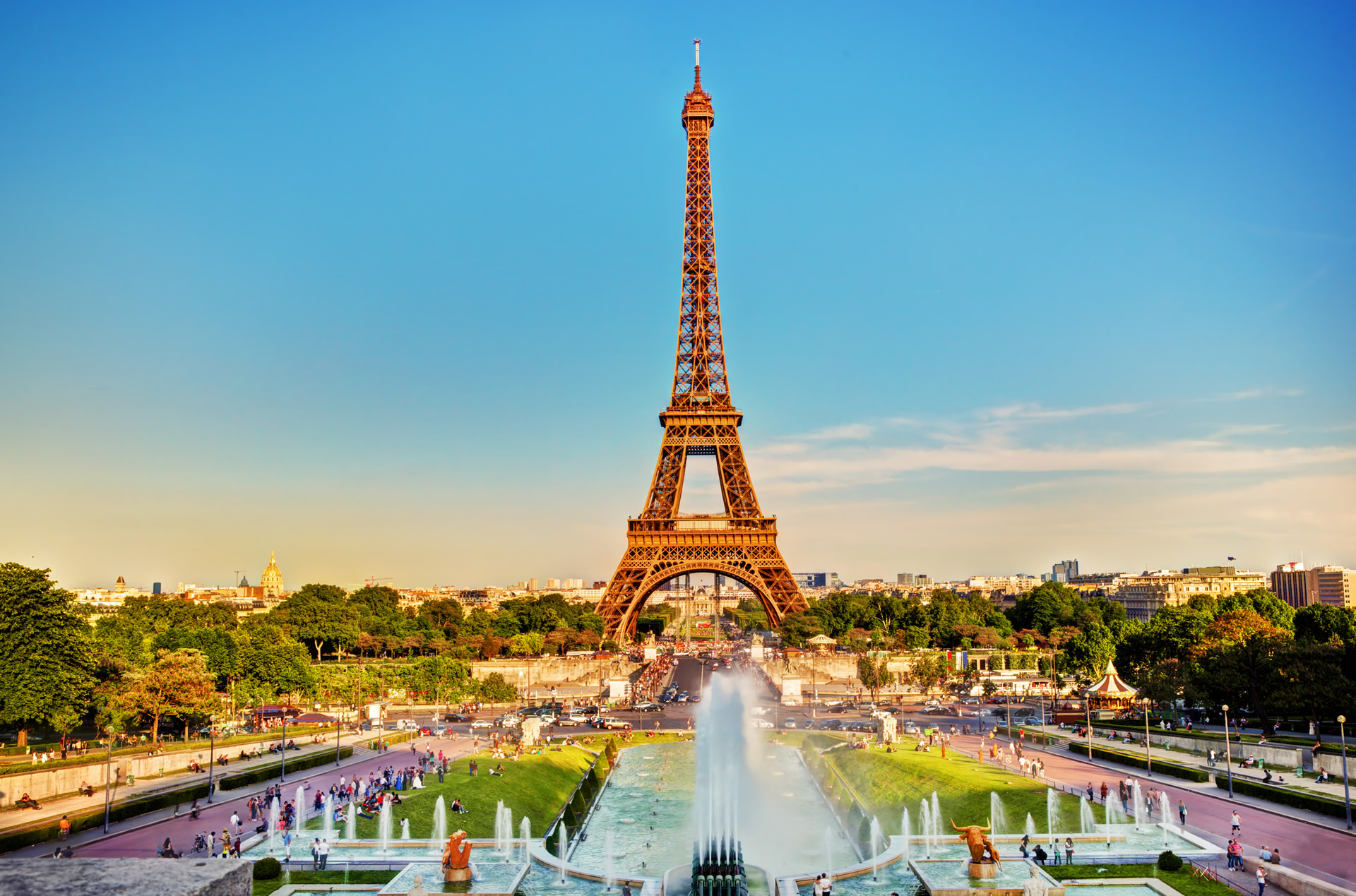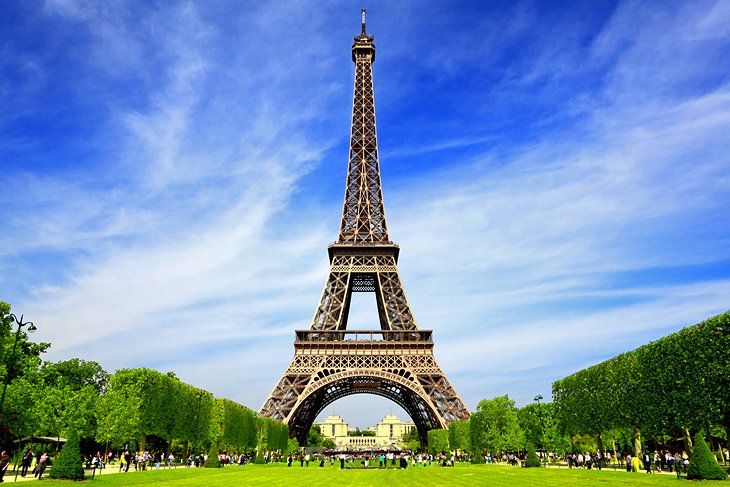
France, a land woven with threads of history, art, romance, and unparalleled culinary delights, beckons travelers with an irresistible charm. From the iconic silhouette of the Eiffel Tower to the sun-drenched vineyards of Provence, its attractions are as diverse as they are captivating. This comprehensive guide will navigate you through the crème de la crème of French destinations, equip you with essential travel tips, and unveil the secrets to experiencing the magic of this extraordinary nation.
The Crown Jewels: France’s Top Attractions
France boasts a staggering array of world-renowned landmarks, each whispering tales of centuries past and offering unforgettable experiences.

Related Articles about France: A Tapestry of Timeless Wonders:
- Beyond the Tulips and Windmills: A Comprehensive Guide to Experiencing the Netherlands
- Morocco: A Kaleidoscope of Culture, Color, and Adventure
- Oman: A Jewel of Arabia – Your Essential Travel Guide
- Tanzania: A Journey Through Adventure, Wildlife, and Culture
- Cape Town: A Symphony of Natural Wonders, Rich History, and Vibrant Culture
-
The Eiffel Tower (Paris): The undisputed symbol of Paris and indeed France, this wrought-iron marvel, built for the 1889 World’s Fair, offers breathtaking panoramic views of the city. Ascend to its summit for an unforgettable perspective, or simply marvel at its grandeur from the Champ de Mars. The tower transforms at night, twinkling with thousands of lights, creating a truly magical spectacle.
-
The Louvre Museum (Paris): Home to an unparalleled collection of art and artifacts, the Louvre is a pilgrimage site for art lovers. From Leonardo da Vinci’s enigmatic Mona Lisa to the graceful Venus de Milo, you’ll find yourself lost in centuries of human creativity. Allocate at least a full day, if not more, to truly appreciate its vastness.
-
Notre-Dame Cathedral (Paris): Though still undergoing restoration after the devastating fire, this magnificent Gothic masterpiece remains a powerful symbol of Parisian heritage. Its imposing facade, intricate gargoyles, and rich history continue to inspire awe. Even from the outside, its resilience and enduring spirit are palpable.

-
The Palace of Versailles (Versailles): Step back into the opulent world of French royalty at this sprawling palace, a testament to the grandeur and extravagance of the Bourbon monarchy. Explore the Hall of Mirrors, the King’s and Queen’s State Apartments, and the meticulously manicured gardens, a masterpiece of landscape architecture.
-
The French Riviera (Côte d’Azur): This glamorous stretch of coastline along the Mediterranean Sea is synonymous with sun, sea, and sophistication. From the vibrant nightlife of Nice and Cannes to the aristocratic allure of Monaco and the artistic charm of Saint-Tropez, the Riviera offers a diverse range of experiences. Picture yourself strolling along the Promenade des Anglais, indulging in delicious seafood, or simply soaking up the Mediterranean sun.
-
Mont Saint-Michel (Normandy): This tidal island commune, crowned by a stunning medieval abbey, is a UNESCO World Heritage site and a truly breathtaking spectacle. As the tide recedes, a sandy causeway emerges, allowing access to this otherworldly fortress. Explore its labyrinthine streets, climb to the abbey’s summit for unparalleled views, and immerse yourself in its mystical atmosphere.
-
The Châteaux of the Loire Valley: This picturesque region is dotted with hundreds of magnificent castles, each with its own unique history and architectural style. From the romantic Château de Chambord with its double-helix staircase to the elegant Château de Chenonceau spanning the River Cher, the Loire Valley offers a fairy-tale journey through French history and architecture.
-
Provence: Renowned for its rolling lavender fields, picturesque villages, and Roman ruins, Provence is a sensory delight. Explore the vibrant markets of Aix-en-Provence, wander through the ancient streets of Avignon, or discover the charming hilltop villages like Gordes and Roussillon. The region’s natural beauty and relaxed pace of life are utterly captivating.
-
Strasbourg and the Alsace Region: With its unique blend of French and German influences, Strasbourg is a city of canals, charming half-timbered houses, and a magnificent cathedral. Explore its picturesque Petite France quarter, known for its canals and flower-laden balconies. The surrounding Alsace region offers delightful wine routes and charming villages.
-
The D-Day Landing Beaches (Normandy): For a poignant and historically significant experience, visit the beaches where Allied forces landed on D-Day, June 6, 1944. Explore the museums, memorials, and cemeteries that commemorate this pivotal moment in World War II, offering a powerful insight into the sacrifices made.
A Glimpse into France’s Rich History
France’s history is a grand narrative spanning millennia, shaping its culture, art, and identity. From prehistoric cave paintings to the Enlightenment and revolutionary upheavals, each era has left an indelible mark.
-
Ancient Gaul: The region was inhabited by Celtic tribes known as Gauls before Roman conquest under Julius Caesar in the 1st century BC. Roman influence brought infrastructure, language (Latin, the precursor to French), and governance.
-
Medieval France: The fall of the Roman Empire led to the rise of various Germanic kingdoms, eventually culminating in the Frankish Empire under Clovis I. The Capetian dynasty established a strong monarchy, and the construction of magnificent Gothic cathedrals like Notre-Dame marked a golden age of religious and architectural achievement. The Hundred Years’ War against England, a period of conflict and eventual French victory, fostered a sense of national identity.
-
The Renaissance and Absolutism: The 16th century saw the influence of the Italian Renaissance, reflected in art and architecture. The 17th and 18th centuries were dominated by the era of Absolutism, with monarchs like Louis XIV, the "Sun King," wielding immense power and leaving behind grand palaces like Versailles.
-
The French Revolution (1789): This watershed moment in history overthrew the monarchy, ushering in an era of republicanism, liberty, equality, and fraternity. It profoundly influenced political thought and movements worldwide.
-
Napoleonic Era and Beyond: Napoleon Bonaparte rose to power, establishing an empire and spreading French influence across Europe. Subsequent centuries saw periods of monarchy, empire, and republic, punctuated by significant events like the Franco-Prussian War and the two World Wars.
-
Post-War France: France played a key role in the formation of the European Union and has remained a major global player in politics, culture, and economics.
Navigating Your French Sojourn: Essential Travel Tips
-
Language: While many French people in tourist areas speak some English, learning a few basic French phrases will be greatly appreciated and enhance your interactions. "Bonjour" (hello), "Merci" (thank you), "S’il vous plaît" (please), and "Au revoir" (goodbye) are a good start.
-
Currency: The currency in France is the Euro (€). Credit and debit cards are widely accepted, but it’s advisable to carry some cash for smaller purchases or in more rural areas.
-
Tipping: Tipping is not as ingrained as in some other countries. Service is usually included in the bill ("service compris"). However, it’s customary to leave a small tip (a few Euros) for exceptional service in restaurants and for hotel staff.
-
Etiquette: French culture values politeness and respect. Greet shopkeepers with "Bonjour" and bid farewell with "Au revoir." Be mindful of noise levels in public spaces.
-
Pace Yourself: France offers an abundance of attractions. Don’t try to cram too much into a short trip. Allow yourself time to savor the experience, wander through charming streets, and enjoy leisurely meals.
-
Book in Advance: For popular attractions, especially in Paris, booking tickets online in advance is highly recommended to avoid long queues. This applies to the Eiffel Tower, the Louvre, and Versailles.
-
Stay Hydrated: Especially during warmer months, carry a reusable water bottle and refill it at public fountains or in your accommodation.
-
Embrace the Food Culture: French cuisine is a highlight. Don’t be afraid to try local specialties, visit bakeries for fresh pastries, and enjoy leisurely meals.
Resting Your Head: Accommodation Options
France offers a diverse range of accommodation to suit every budget and preference:
-
Hotels: From luxury five-star establishments in Paris to charming boutique hotels in the countryside, hotels are abundant. Consider your location and desired amenities when choosing.
-
Gîtes and Chambres d’hôtes: These are self-catering cottages (gîtes) or bed and breakfasts (chambres d’hôtes) often found in rural areas. They offer a more authentic and immersive experience, allowing you to interact with local hosts.
-
Apartment Rentals: Platforms like Airbnb offer a wide selection of apartments, ideal for longer stays or for those who prefer to have their own kitchen facilities.
-
Hostels: Budget travelers can find numerous hostels, particularly in major cities, offering dormitory-style rooms and private options.
-
Camping: For those who enjoy the outdoors, France has a vast network of campsites, ranging from basic pitches to fully equipped mobile homes.
Getting Around: Transportation in France
France boasts an excellent and efficient transportation network:
-
High-Speed Trains (TGV): The TGV is a fantastic way to travel between major cities. It’s fast, comfortable, and offers stunning views of the French countryside. Book tickets in advance for the best prices.
-
Regional Trains (TER): For shorter distances and exploring smaller towns, regional trains are a convenient option.
-
Buses: Intercity bus services connect many towns and cities, often at a more affordable price point than trains.
-
Car Rental: Renting a car offers the most flexibility, especially for exploring rural areas and charming villages. Be aware of driving on the right side of the road and potential tolls (péage).
-
Metro and Public Transport: Major cities like Paris, Lyon, and Marseille have extensive metro systems, trams, and bus networks, making it easy to navigate within the city.
-
Cycling: In many cities and in the countryside, cycling is a popular and enjoyable way to explore. Many towns offer bike rental services.
The Golden Window: Best Time to Visit France
The "best" time to visit France depends on your priorities and what you wish to experience:
-
Spring (April to June): This is an ideal time to visit. The weather is mild and pleasant, flowers are in bloom, and the crowds are generally smaller than in the peak summer months. It’s perfect for exploring cities, gardens, and the countryside.
-
Summer (July to August): This is the peak tourist season, characterized by warm to hot weather and longer daylight hours. It’s perfect for beach holidays on the Riviera, enjoying outdoor festivals, and experiencing lively city atmospheres. However, expect larger crowds and higher prices.
-
Autumn (September to October): Another excellent time to visit. The weather remains pleasant, the autumn colors are stunning, and the crowds begin to thin. This is a great time for wine tasting in regions like Bordeaux and Burgundy, and for exploring cities without the intense summer heat.
-
Winter (November to March): While cooler and potentially rainy, winter offers a different kind of charm. Paris is magical with its Christmas markets and festive decorations. Ski resorts in the Alps are in full swing. It’s also a great time for museums and cultural attractions with fewer crowds and potentially lower accommodation prices.
France is a country that transcends fleeting trends, offering a timeless allure that captivates the soul. Whether you’re drawn to its iconic landmarks, its rich history, its delectable cuisine, or its breathtaking landscapes, a journey to France promises an unforgettable tapestry of experiences, leaving you with cherished memories and a longing to return.





